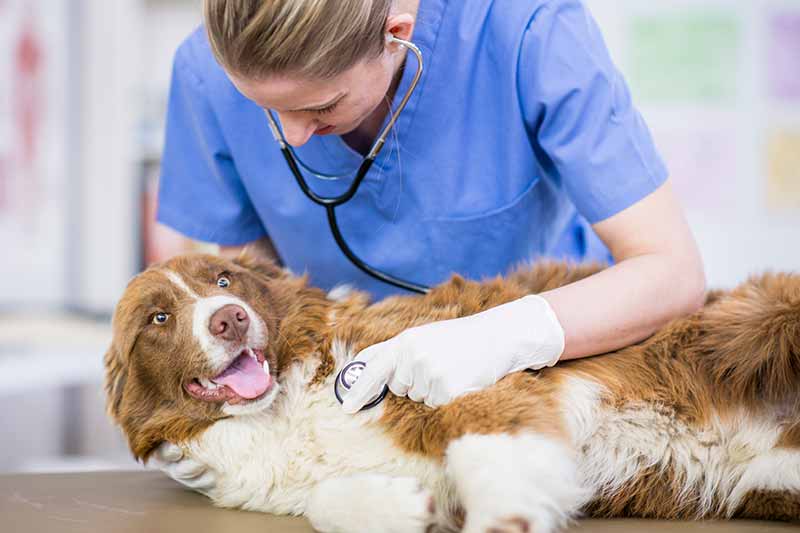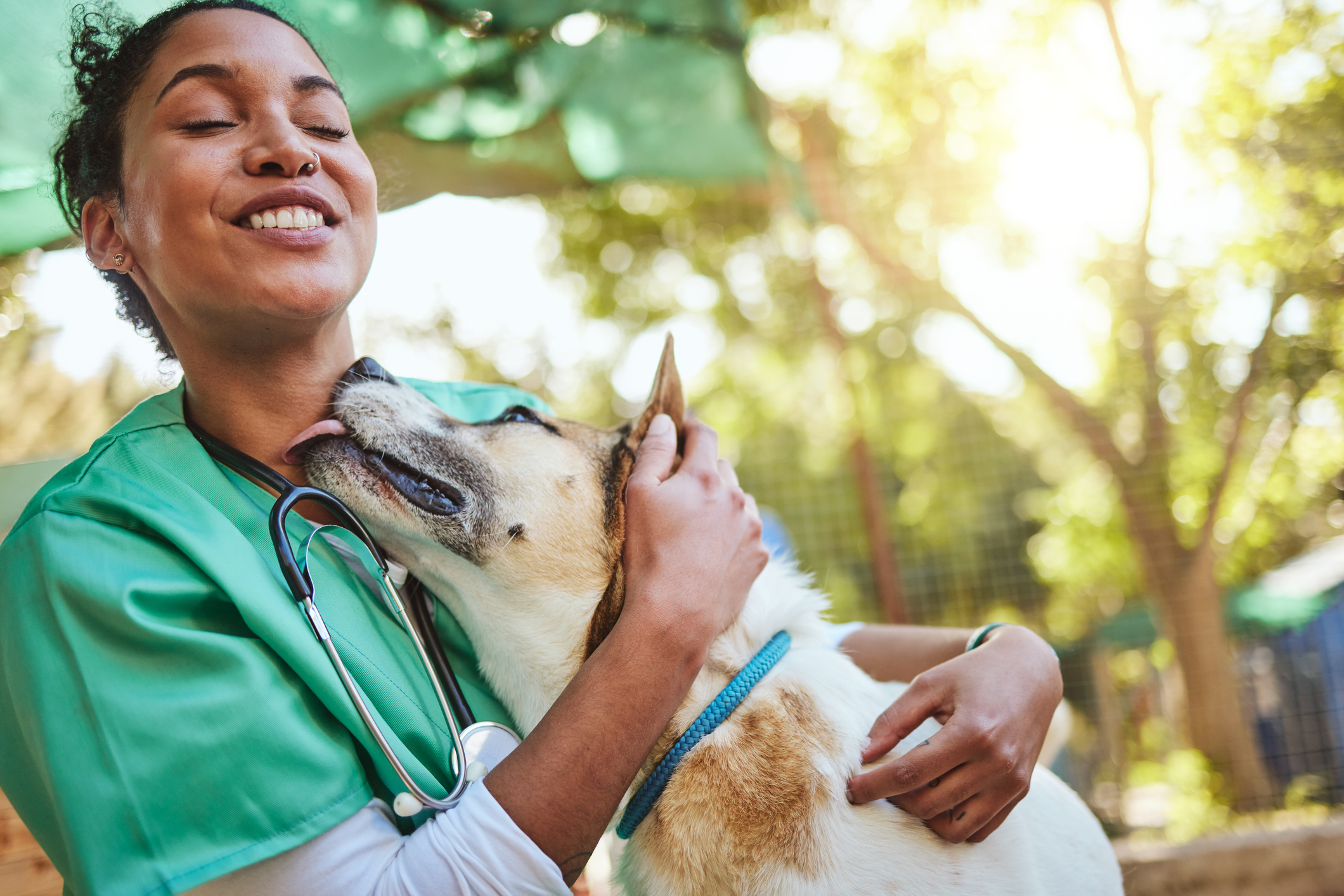Why a Routine Pet Health Checkup is Vital for Preventative Pet Treatment
Inoculation Guidelines From Your Trusted Vet
Inoculation guidelines provided by your relied on veterinarian play a vital function in safeguarding your pet's wellness and health. Core injections are fundamental for all pets, while non-core vaccines can be customized to environmental direct exposures and certain lifestyles. Understanding the subtleties of inoculation routines, which start as early as 6 to 8 weeks, is crucial for ideal protection. Furthermore, addressing typical misunderstandings bordering vaccines can additionally enhance pet dog owners' self-confidence in these safety nets. As we check out these crucial facets, it ends up being increasingly clear why regular appointments with your vet are indispensable for educated decision-making.

Importance of Vaccinations
Inoculations play a critical role in guarding pet dogs against an array of preventable diseases. By boosting the body immune system to identify and fight particular pathogens, vaccinations substantially lower the incidence of contagious diseases that can influence a pet dog's wellness and longevity. Not just do inoculations secure private pets, yet they also contribute to herd resistance, therefore lowering the total frequency of diseases in the pet dog population.
Prompt inoculations assist to reduce the spread of conditions such as rabies, parvovirus, and distemper, which can have extreme consequences for both human beings and family pets. Moreover, vaccinations are commonly a demand for boarding facilities, grooming services, and pet parks, making them important for those that wish to socialize their animals.

Core Vaccinations for Pets
While the details inoculation needs of animals can vary based upon private aspects, core injections are universally advised to secure versus the most significant and common illness (Veterinarian Enterprise). Core injections are those deemed vital for all pets, despite their way of living or geographical area, as they safeguard against possibly fatal and highly infectious health problems
For dogs, the core vaccinations include those for canine distemper, parvovirus, adenovirus (liver disease), and rabies. Adenovirus can result in liver condition, while rabies is a zoonotic illness that presents a risk to both humans and pet dogs.
In cats, core vaccines encompass feline panleukopenia, feline calicivirus, feline herpesvirus (rhinotracheitis), and rabies. Feline panleukopenia is a highly infectious viral disease that impacts the immune system and intestines. Calicivirus and herpesvirus are major contributors to top respiratory system infections in felines, while rabies stays an important problem for public wellness.
Seek advice from your veterinarian to guarantee your pets get their core vaccinations on time.
Non-Core Vaccines Explained
Non-core vaccines are customized to resolve details risks linked with an animal's exposure, lifestyle, and atmosphere to particular conditions. Unlike core vaccines, which are widely recommended for all pets, non-core injections are taken into consideration based upon specific conditions. These injections are specifically crucial for animals that might encounter distinct pathogens because of their geographical location, travel practices, or tasks.
Instances of non-core injections consist of those for Bordetella bronchiseptica, which is linked to kennel coughing, and Lyme condition, created by ticks. Family pets that regularly connect with various other animals, such as those in boarding facilities, pet parks, or grooming settings, may benefit from Bordetella vaccination. Similarly, if you stay in a location where Lyme condition prevails, immunizing versus this disease can be a prudent option for outdoor-loving dogs.
Various other non-core injections may include those for leptospirosis, canine influenza, and feline leukemia, depending on the specific danger elements present. It is important to have a complete discussion with your vet regarding your pet dog's way of life and the potential requirement for these injections, making sure a customized inoculation strategy that ideal protects your hairy pal.
Inoculation Schedule Introduction

As pets mature, it is very important to stick to the recommended booster vaccinations. Pet Health Checkup. For grown-up animals, core vaccinations are generally given every one to three years, relying on the certain vaccine and local laws. Non-core vaccines might be advised based upon lifestyle factors and regional illness prevalence, necessitating a customized approach
Regular vet exams are important for updating inoculation timetables. Your veterinarian can provide guidance on one of the most ideal booster shots for your family pet, factoring in age, health and wellness condition, and ecological threats. By staying aggressive and informed, pet owners can guarantee their fuzzy buddies obtain effective and timely inoculations, therefore protecting their health and wellness and health throughout their lives.
Typical Misconceptions About Injections
Misconceptions regarding pet vaccinations can cause complication and reluctance amongst pet proprietors relating to the immunization process. One common misconception is that vaccines are unnecessary for interior family pets. While it holds true that indoor animals deal with reduced risks, they are not totally immune to diseases, as virus can be introduced through various methods, consisting of human apparel and various other pets.
Another published here misunderstanding is that vaccinations can trigger the conditions they intend to avoid. In truth, the majority of vaccines have inactivated or undermined microorganisms, which can not create illness in healthy and balanced animals. Some pet dog proprietors likewise believe that their family pets must not be vaccinated if they are already healthy; however, inoculations are a positive measure that assists stop the beginning of ailment.
Furthermore, numerous family pet proprietors fear that vaccines will certainly lead to long-term health and wellness Recommended Site problems. The benefits of inoculation-- securing pet dogs from possibly deadly conditions-- far surpass the dangers.
Verdict
In recap, adherence to inoculation guidelines is critical for making sure the health and wellness and long life of pet dogs. Resolving typical misconceptions bordering inoculations additionally strengthens the relevance of informed decision-making in pet treatment.
Not only do inoculations safeguard specific pets, however they also add to herd immunity, thereby reducing the general frequency of conditions in the pet populace.
False impressions regarding pet vaccinations can lead to confusion and hesitation among family pet owners relating to the immunization procedure. While it's real that indoor animals encounter lower risks, they are not totally immune to illness, as pathogens can be introduced via numerous methods, including human clothing and other pets.
Some pet proprietors likewise think that their pets should not be immunized if they are currently healthy; nevertheless, inoculations are a proactive procedure that helps avoid the onset of disease.
The advantages of inoculation-- shielding pets from potentially lethal diseases-- far outweigh the threats.